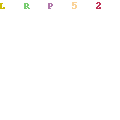 An interesting article by Galen Gruman on Computerworld, “Opinion: Desktop Linux is ready for the mainstream“, covering why the author feels that Linux is definitely ready for the mainstream:
An interesting article by Galen Gruman on Computerworld, “Opinion: Desktop Linux is ready for the mainstream“, covering why the author feels that Linux is definitely ready for the mainstream:
My verdict: Desktop Linux is a great choice for many regular Joes with basic computer needs. And not just on netbooks.
In fact, I found that it makes a lot of sense to standardize office workers on desktop Linux. I now understand why governments in Asia and Europe say they want to get off the Microsoft train and shift to Linux. I thought these were empty threats meant to get better licensing deals or to blunt some of Microsoft’s monopolistic power, but as it turns out, desktop Linux is a worthwhile option for both public organizations and private companies. Those who standardize on Linux would save serious money on the new equipment needed for Vista or Windows 7, not to mention OS and Office upgrades as well. Your business could, too.
Moreover, Linux-based shops would require significantly less training than they would to teach staff Vista or Windows 7 and Microsoft Office 2007.
The section that caught my eye, however, was when Galen covered office productivity suites:
OpenOffice is a sound alternative to Microsoft Office, but I spent most of my time with the free IBM Lotus Symphony, which is a slightly better productivity suite than OpenOffice, in the InfoWorld Test Center’s evaluation. It’s simply more refined and will be easier for Office users to adapt to, even though it lacks the database and drawing applications that OpenOffice has. I’m sure there are features in Word, Excel, and PowerPoint that Symphony and OpenOffice can’t match, but you can bet that for 80 percent or more of your “knowledge workers,” sales staff, and so on that Symphony or OpenOffice will do the job.
There’s that 80/20 rule again. Good to see that he agrees that IBM’s work on Lotus Symphony has produced a good-looking and easy-to-use productivity suite.
Coming back to the option of running Linux on the desktop in your organisation, Galen is both optimistic and realistic:
I’m not suggesting every organization chuck its Windows or Mac OSes for desktop Linux. But many companies, government agencies, and educational institutions can chuck at least some of them. Those based on XP — or Windows 2000, which still has a huge installed base in government agencies — can look to big savings on licensing, hardware, and training costs.
Desktop Linux and its core productivity apps are solid and worth serious consideration for many of your users’ PCs. Try it yourself.
Link: ComputerWorld – Opinion: Desktop Linux is ready for the mainstream
